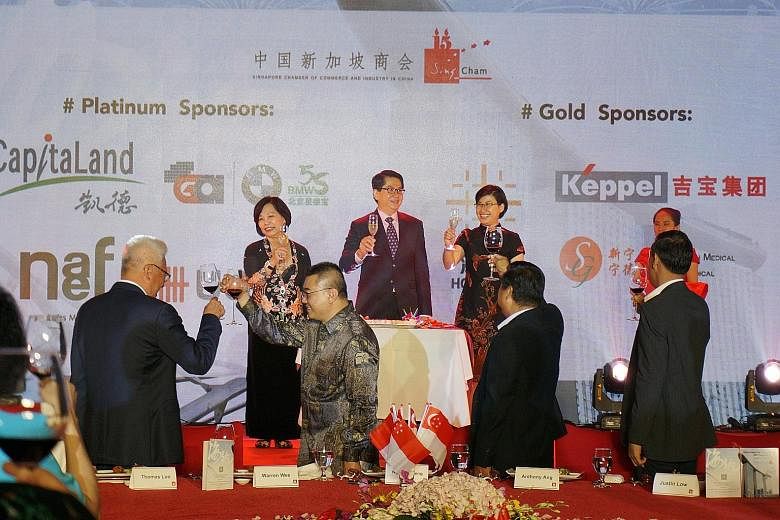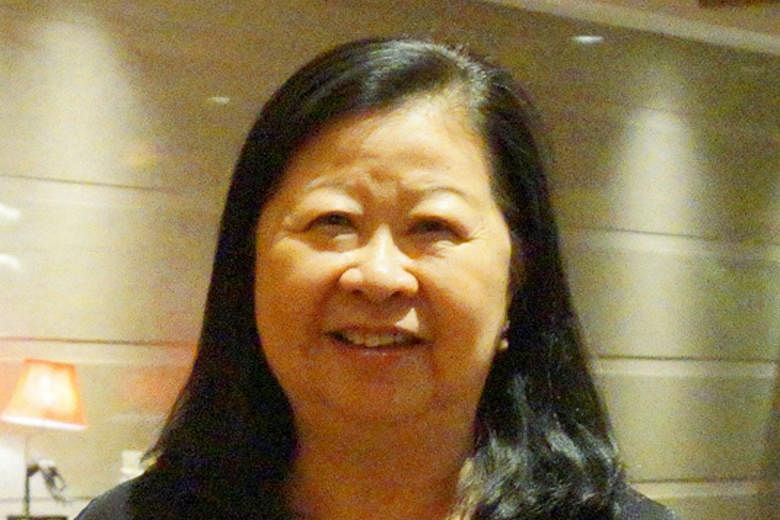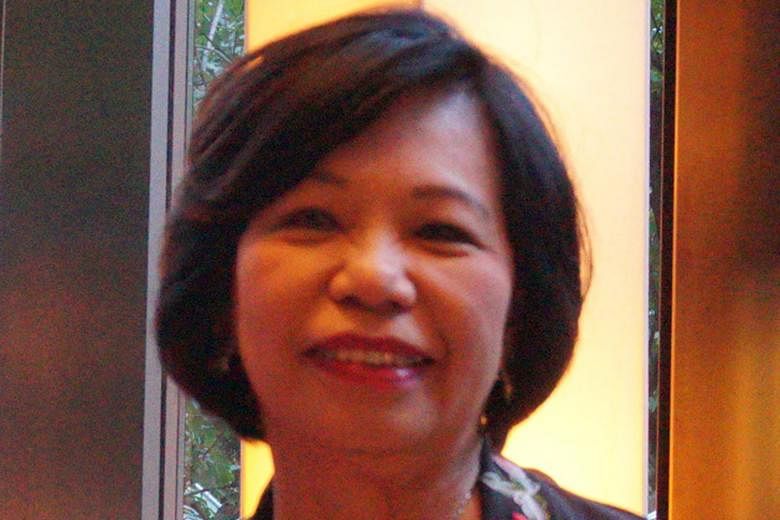While most of the 400 guests at a dinner here last night to celebrate Singapore's National Day were based in Beijing, some had flown in specially from Singapore.
One of them was business consultant Edith Cheong, who used to be based in the Chinese capital as commercial counsellor and representative of International Enterprise Singapore, the government agency that helps Singapore firms to venture overseas.
For the dinner also marked the 15th anniversary of the Singapore Chamber of Commerce and Industry in China (SingCham). Ms Cheong had a hand in setting up the chamber when she was based at the Singapore Embassy here.
"We had to obtain 12 stamps," she recalled with a laugh, referring to official endorsements from Chinese government departments needed to set up the chamber.
Singaporeans have been coming to China to work and start businesses since the 1980s, to take advantage of the opportunities afforded by the country's reforms and opening up from 1978.
Some started their own informal networking groups, including a social club in Beijing. But the Singapore Embassy saw the need for a formal business organisation where Singaporean businessmen could network and which could represent Singaporean business interests to the Chinese government.
One of SingCham's founding members was Ms Dorothy Seet, 65, who has been its chairman for the past 13 years. She recalls that it started with just eight members in 2002. "When we started, because of (a lack of) familiarity and because of the fact that resources were limited, we started more like a networking group for the companies," she recounted.
It held luncheon business talks once a month to get Singaporeans in business to share their experiences and weekly networking sessions between Singaporean and Chinese businessmen.
Since then, it has gone on to form working groups in seven provinces and cities, including Fujian, Guangdong, Sichuan and, most recently, at the start of this year, Chongqing.
It also organises business missions to various provinces to help Singaporean businesses based in China to explore business opportunities beyond their own patches.
It helps to link businessmen with the services they need, such as recruitment agencies, and Chinese organisations with Singapore ones.
Its flagship event now is an annual conference begun in 2015 and organised in cooperation with Chinese business magazine Caixin. It looks at key economic and business developments in China.
Last year's theme was disruptive innovation and this year's, to be held on Sept 15, will be on the internationalisation of the Chinese currency, the yuan.
Mr Billy Jak Meng Lim, 40, a senior executive at a Spanish hotel chain, joined SingCham four to five years ago to get to know the Singapore community here better. He went on to become a member of its executive committee early last year, in the hope that SingCham would "create more value-added services" for its members.
However, SingCham has only a small staff of three in the secretariat and all its office-bearers are volunteers, limiting its ability to expand its functions. Its office-bearers also come and go, and that affects continuity of what the organisation does.
"We have not done enough and we could do a lot more" to make SingCham a first stop for Singapore businesses coming into China, said Ms Seet. For this to happen, there is a need to "eventually institutionalise SingCham so that there is continuity".
The Singapore Embassy held a lunch reception on Friday and, on Aug 12, will have an open house at the embassy grounds as part of its National Day celebrations.




